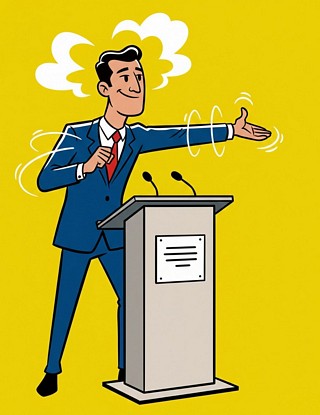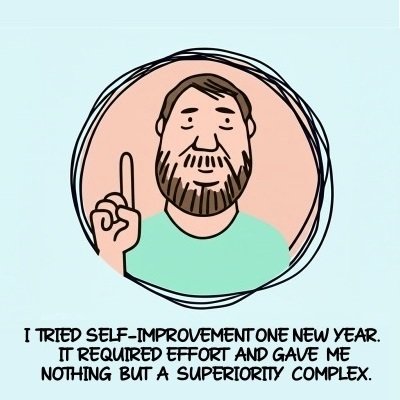A rising trend in modern conversation reveals what I call “the hollow ring of assertive posturing.”
 Phrases such as “look,” “here’s the deal,” and “here’s what you need to know” have become common preambles. Sometimes they’re harmless fillers, but often they’re micro-commands meant to seize the floor and project manufactured authority.
Phrases such as “look,” “here’s the deal,” and “here’s what you need to know” have become common preambles. Sometimes they’re harmless fillers, but often they’re micro-commands meant to seize the floor and project manufactured authority.
This isn’t persuasion—it’s performance. A quick scroll through YouTube offers highlight reels of career politicians trying to “level with you” or “look” you into submission while they stall for time.
At its core, this is linguistic puffery. These phrases act like verbal bookmarks, staking mental real estate before the speaker has earned it. When you lead with “look,” you’re issuing a command to the listener’s attention. It’s the conversational equivalent of chest-thumping—an attempt to project confidence that often exposes its opposite: insecurity.
These are power-seeking markers. A person truly confident in the weight of their ideas doesn’t need a siren or motorcade to announce them; they trust the substance to carry the room. Theatrical openers betray a fear that the point won’t stand on its own.
They also offer a shortcut to moral high ground.”here’s the deal” frames the speaker as the sole arbiter of truth, implying the listener lacks a grasp on reality. This doesn’t build consensus; it bypasses it.
And while preambles seize attention, closure phrases like “end of story” attempt to silence it. They don’t invite dialogue; they declare finality. Both moves expose the same insecurity: a fear that the ideas can’t withstand scrutiny.
The irony is that influence thrives on economy of language. Strip away the fanfare and you strip away the ego, leaving the listener to focus on the insight itself.
Idea for Impact: If your point holds weight, skip the theatrics. Speak plainly, and let the quiet strength of your ideas carry it.
 My friend Jack recently offered a retrospective on his decade-long dalliance with sneaker trends—a ride as unpredictable as it was swift. He began faithfully attached to New Balance, those once-maligned “dad shoes” that screamed suburban resignation. Then came Converse, adopted not for comfort but for credibility, as his children entered the age of judgment and he entered the age of trying not to embarrass them. Shortly thereafter, he flirted with On sneakers during a Lululemon-inspired phase that boldly declared, “I’m trendy, indeed!” Yet as fashion’s fickle currents swept him toward HOKA’s cloud-like comforts, Jack eventually circled back to a reinvented New Balance—now celebrated as a bona fide streetwear icon. Worn out by the relentless trend chase, he
My friend Jack recently offered a retrospective on his decade-long dalliance with sneaker trends—a ride as unpredictable as it was swift. He began faithfully attached to New Balance, those once-maligned “dad shoes” that screamed suburban resignation. Then came Converse, adopted not for comfort but for credibility, as his children entered the age of judgment and he entered the age of trying not to embarrass them. Shortly thereafter, he flirted with On sneakers during a Lululemon-inspired phase that boldly declared, “I’m trendy, indeed!” Yet as fashion’s fickle currents swept him toward HOKA’s cloud-like comforts, Jack eventually circled back to a reinvented New Balance—now celebrated as a bona fide streetwear icon. Worn out by the relentless trend chase, he  When stress hits, lowering your standards and aiming for
When stress hits, lowering your standards and aiming for  Dry January is marketed as a
Dry January is marketed as a  Few things feel more exhausting than the annual tradition of drafting New Year’s
Few things feel more exhausting than the annual tradition of drafting New Year’s  Optimism’s useful—good for your mind, body, and well-being. But it’s not a cure-all.
Optimism’s useful—good for your mind, body, and well-being. But it’s not a cure-all. Disappointed? Hurt? Offended?
Disappointed? Hurt? Offended? Life’s a series of trade-offs; each choice has an opportunity cost—
Life’s a series of trade-offs; each choice has an opportunity cost— We rely on to-do lists to organize our tasks, yet they often
We rely on to-do lists to organize our tasks, yet they often 